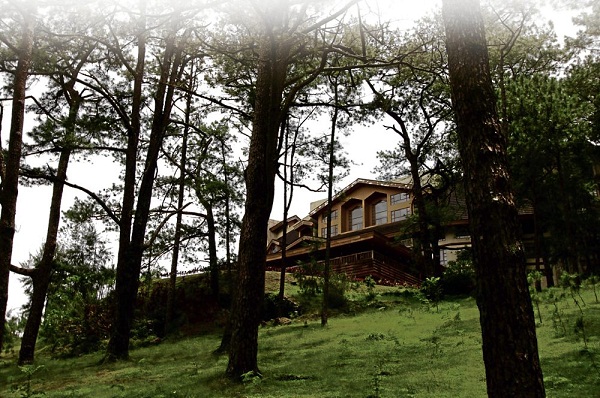THE STATE-RUN Bases Conversion and Development Authority (BCDA) disputed anew claims that it reneged on its commitments to the developer of Camp John Hay in Baguio, stressing that it had been consistent in “respecting the rule of law.”
In a letter to the Inquirer, BCDA president Arnel Paciano D. Casanova said the special report of business consultant and Inquirer columnist Peter Wallace, who claimed that the state agency didn’t deliver on many of its commitments to Camp John Hay Development Corp. (CJHDevCo), did not cite the pertinent facts that led to the legal tussle between the two parties.
Casanova pointed out that CJHDevCo had been remiss in fulfilling its obligations to the government under its lease agreement with the BCDA, and had also misled its sublessees and the Court of Appeals in several counts, thus compelling the government to pursue and undergo an arbitration process.
‘Impunity and fraud’
“CJHDevCo is obviously trying to exploit the government by using public property to generate revenues for themselves without paying their lease to the Philippine government. The case of CJHDevCo is a case of impunity and fraud that victimized the public and the government. One must be able to distinguish fraud and impunity against good governance,” he explained.
“We do share the need for the government to protect the sanctity of contracts. And it is in this spirit that we enforce the contract and the rule of law against the fraudulent business practices that deprive the state the funds that it needs to deliver basic services. (CJHDevCo chair Robert John L.) Sobrepeña’s track record in his businesses speaks for itself—the CAP, MRT, Southwoods and others,” he said.
The BCDA earlier claimed that CJHDevCo had not been paying lease for use of Camp John Hay, and that the company’s arrears had ballooned to over P3.4 billion to date.
The BCDA then issued CJHDevCo a notice of termination of its lease arrangement for Camp John Hay in May 2012 for material and incurable breaches of its contractual obligations and ordered it to vacate the property.
CJHDevCo, however, sought an injunction order from the courts to prevent the BCDA from taking back the government property.
Rescinded
In February 2015, the BCDA’s lease agreement with CJHDevCo was finally rescinded by virtue of the final award rendered in the arbitration under the Philippine Dispute Resolution Center Inc. (PDRCI).
The PDRCI decision ordered the BCDA to return to CJHDevCo P1.4 billion in rentals and absolved the Sobrepeña-led firm of the supposed P3.3 billion worth of unpaid arrears being claimed by the state agency.
In turn, CJHDevco was directed to vacate Camp John Hay and turn it over to the BCDA.
The final award was also confirmed by Branch 6 of the Regional Trial Court of Baguio City. As a result, CJHDevCo has been divested of its authority to manage and administer the John Hay Special Economic Zone (JHSEZ).
According to Casanova, Wallace failed to mention that CJHDEvCo owed P3.4 billion in unpaid rent to the BCDA, of which P850 million could have been the share of Baguio, La Trinidad, Itogon, Sablan, Tuba, and Tublay.
He also pointed out that CJHDevCo stopped paying its lease to the BCDA as early as 1997, the second year of its stay in the JHSEZ, claiming it was experiencing financial losses.
However, this claim was allegedly contrary to CJHDevCo’s financial statements, which declared dividends of P378 million for 1998; P350 million for 1999; and P200 million for 2000.
Misrepresentation
“It did not file anymore audited financial statements until 2012—a period of 12 years. However, it was revealed during the arbitration process that CJHDevCo has been declaring dividends and advances to its shareholders and affiliates every year amounting to P1.2 billion. During this period, the lease agreement had been restructured thrice based on CJHDevCo’s claim of financial losses, which proved to be fraudulent misrepresentation,” Casanova said.
“CJHDevCo (also) misled (its) sublessees by selling them 50-year leasehold rights when in fact, the primary or main lease between the BCDA and CJHDevCo is only 25 years renewable for another 25 years. The 25-year renewal is not a vested right but merely an option… CJHDevCo collected payments for 50-year leases,” he added.
The BCDA chief further claimed that CJHDevCo continued to mislead its sublessees even after the rescinding of the lease agreement. CJHDevCo had allegedly told Camp John Hay locators that the agency had been aware of their contracts and that the BCDA should continue to honor these.
“CJHDevco is liable to the sublessees. Under the laws on contracts, CJHDevco must refund the payments that the sublessees paid. CJHDevco wants to avoid liabilities to its sublessees and would want to run away with the P1.4-billion refund due to these sublessees,” Casanova said.


